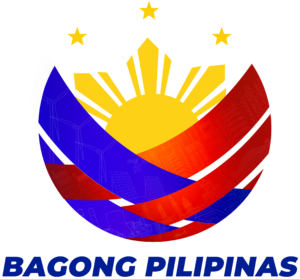DE LA SALLE UNIVERSITY1911-2011By: Ferdinan S. Gregorio Protestantism surfaced in the Philippines upon the arrival of the Americans, liberalizing the concepts of religion and education. This led to the rise of non-sectarian private elementary and secondary schools which did not include Catechism among their subjects. The diminishing influence of Catholic education was continue reading : De La Salle University
Filipinos to be called ‘Rizalines’
FILIPINOS TO BE CALLED ‘RIZALINES’‘Gen. Artemio Ricarte’s Rizaline Constitution’By: Quennie Ann J. Palafox Decades ago, debates cropped up concerning the appropriateness of “Philippines” as our national name, “Filipinos” as our nationality, for the name Philippines is said to denote the slavery and colonization of a great country. Some proposed to abolish the continue reading : Filipinos to be called ‘Rizalines’
A Few Thoughts on Freedom and Colonial Culture
A FEW THOUGHTS ON FREEDOM AND COLONIAL CULTUREby Ferdinan S. Gregorio According to Esteban de Ocampo, former Chairperson and Executive Director of the National Historical Commission of the Philippines, “Filipinos are by nature and tradition a liberty-loving people. The pages of their history are replete with revolts, uprisings, mutinies, insurrections, and rebellions continue reading : A Few Thoughts on Freedom and Colonial Culture
Our Founding Mothers: Lest We Forget
OUR FOUNDING MOTHERS: LEST WE FORGETBy: Quennie Ann J. Palafox A popular saying goes “Behind every man’s success, is a woman”. As far as history is concerned, women have played important roles not only in support of their husbands or in nurturing their child but in nation-building as well. From pre-Hispanic times continue reading : Our Founding Mothers: Lest We Forget
Deodato Arellano
(1844-1896?) Propagandist and First President of the Katipunan Propagandist and first president of the Katipunan, Deodato Arellano was born to Juan de la Cruz and Mamerta de la Cruz on July 26, 1844 in Bulacan, Bulacan. The family changed their name to Arellano in compliance with the Claveria decree of 1849. continue reading : Deodato Arellano
Patricio G. Mariano, Nationalist Playwright
PATRICIO G. MARIANO, NATIONALIST PLAYWRIGHT A playwright, poet, journalist, violinist, and painter, Patricio Mariano y Geronimo was born on March 17, 1877 in Santa Cruz, Manila to parents Petronilo Mariano and Dionisia Geronimo. Patricio Mariano finished his secondary education at the Ateneo Municipal and San Juan de Letran. He pursued bookkeeping at continue reading : Patricio G. Mariano, Nationalist Playwright
An Ibanag Soldier in the Visayan Revolutionary Forces
AN IBANAG SOLDIER IN THE VISAYAN REVOLUTIONARY FORCES By: Quennie Ann J. Palafox Mateo Noriel Luga is probably one of the most unsung revolutionaries the Philippines ever had. His parentage and other information about him remain mysterious, but his legacy is more essential for the Filipinos to know. The Cebuanos look continue reading : An Ibanag Soldier in the Visayan Revolutionary Forces
Maria Corazon Cojuangco Aquino
MARIA CORAZON COJUANGCO AQUINO (January 25,1933- August 1, 2009) Maria Corazon Cojuangco Aquino was the eleventh and first woman President of the Philippines. She was born on January 25, 1933 in Manila, the sixth of the eight children of Don Jose Cojuanco Sr., lawyer, congressman representing Tarlac, sugar magnate and banker, and Doña continue reading : Maria Corazon Cojuangco Aquino
The Life and Drama of Severino Reyes
THE LIFE AND DRAMA OF SEVERINO REYES By: Quennie Ann J. Palafox Decades ago, before rock, mellow and RnB songs flourished in the music arena, there was the zarzuela dominating the countryside. Zarzuela, nowadays, is a long forgotten form of art, which underwent a dramatic setback during the 1930s with the advent continue reading : The Life and Drama of Severino Reyes
Hernando R. Ocampo
HERNANDO R. OCAMPO (1911-1978) National Artist Hernando Ocampo was a man whose name connotes excellence in the arts – be it in literature, news papering or painting, but especially in painting. Ocampo was born on April 28, 1911 in Sta. Cruz, Manila. His parents were Emilio Ocampo and continue reading : Hernando R. Ocampo
When Markers Lie
WHEN MARKERS LIEby Peter Jaynul V. Uckung The Philippine has a healthy sense of remembering her Independence Day. Proofs of this are the countless memorials and shrines dotting the landscape, telling tales of battles and extolling the sacrifices of Filipinos in fighting for freedom. Indeed, June 12, is a very hallowed date continue reading : When Markers Lie
Asia’s Oldest University, The Royal and Pontifical University of Santo Tomas
ASIA’S OLDEST UNIVERSITYTHE ROYAL AND PONTIFICAL UNIVERSITY OF SANTO TOMASBy: Quennie Ann J. Palafox The oldest existing university in Asia and the largest Catholic University in the world in terms of population is found in the Philippines. The University of Santo Tomas in España, Manila in the District of Sampaloc, turned 400 years old. continue reading : Asia’s Oldest University, The Royal and Pontifical University of Santo Tomas

